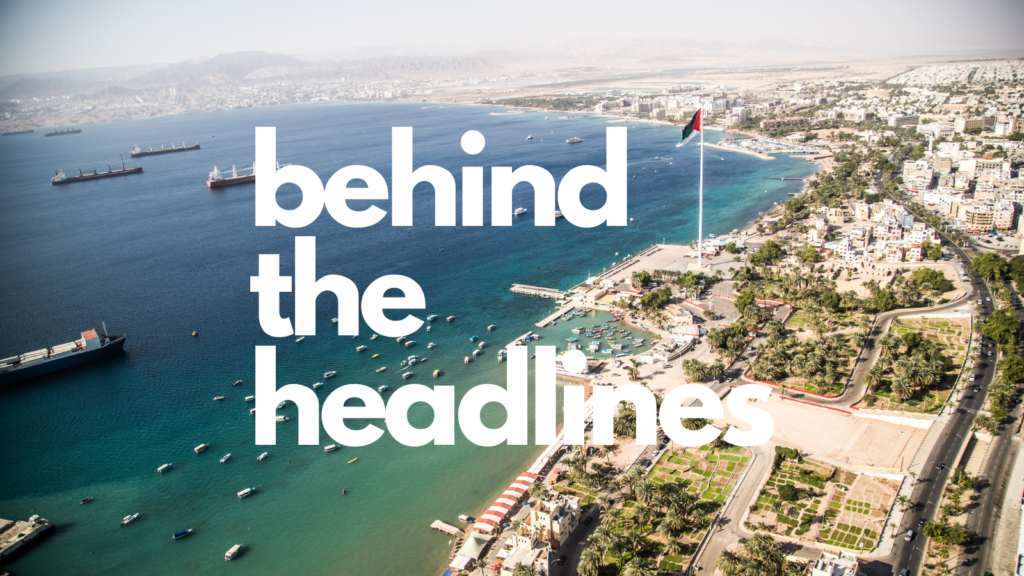The safety of cruising through the Red Sea has been a pressing concern amidst recent conflicts. Safety precautions have become a top priority for cruise lines operating in this region.
The situation has required cruise operators to adapt quickly, ensuring passenger security while minimising disruption to travel plans.
Recent Conflicts and Impacts
In recent months, the Red Sea has seen a surge in conflict-related incidents. In November last year, Houthi rebels initiated an assault on a commercial vessel in the Bab-el-Mandeb strait, escalating tensions in the region. Further attacks followed in December, involving drones and missiles aimed at commercial ships. These events have significantly altered the risk landscape for cruise lines operating in the area.
The Houthi group’s actions were, according to their statements, in retaliation to the ongoing conflict between Israel and Palestine. The repercussions have extended to the cruise industry, forcing lines to reconsider their itineraries in affected areas. Several cruise companies have already cancelled voyages due to safety concerns prompted by these conflicts.
Response from Cruise Lines
Many prominent cruise operators have swiftly responded to these risks. Virgin Voyages announced the cancellation of its 2024/25 season for Resilient Lady, rerouting the vessel to safer waters. The company cited regional tensions and governmental advice as reasons for their decision, emphasising the unpredictability of the situation in the Red Sea.
Similarly, MSC Cruises, Fred Olsen Cruise Line, and Holland America Line are among others who have adjusted their routes to avoid the area. This reaction underscores a commitment to ensuring the safety of passengers and crew, while also considering the logistical challenges posed by the conflict.
Impact on Travel Agents and Customers
Travel agents are facing the brunt of these disruptions, tasked with managing the fallout from cancellations. According to Linda Hill Miller of LAH Travel, agents are left to navigate the complexities of schedule changes and lost bookings, often without adequate support from cruise lines.
Miller described a personal experience where a £30,000 booking was lost due to the situation. She expressed frustration with cruise lines that opt to refund customers directly instead of collaborating with agents on alternative solutions, which might better serve the interests of all parties involved.
The impact extends to customers, who experience uncertainty and disappointment over changed plans. This situation is particularly challenging for those on round-the-world cruises, who must adapt to substantial itinerary changes without forewarning.
Future Prospects for the Red Sea Region
The future of cruising in the Red Sea hinges on significant geopolitical changes. James Hill, a river cruise specialist, posits that only with extensive political reforms and stability can the region be deemed safe for tourism again. Historical precedents like Egypt and the Nile indicate that areas previously avoided due to conflict can recover if safety assurances are confirmed.
However, regaining customer confidence is a slow process. According to Miller, even if the Red Sea were declared safe imminently, it would take years for public perception to shift positively. The travel industry must prepare for a prolonged period of recovery.
The overarching sentiment is one of caution. Negative perceptions are rapidly amplified by the media, further complicating efforts to rebuild trust in these destinations.
Cancelled and Altered Itineraries
Specific cruise lines, including Virgin Voyages and MSC Cruises, have announced exact itinerary changes as a response to the shifting security dynamics. These adjustments highlight a unique capability of the cruise industry: the flexibility to redeploy vessels in response to geopolitical issues while ensuring guests can still enjoy their holidays in safer locations.
MSC Cruises, for example, has redirected its vessels from South Africa and the United Arab Emirates directly to Europe, thereby bypassing the Red Sea. Similarly, Holland America Line altered their 2024 Grand World Voyage to avoid potential conflict zones, prioritising guest and crew safety above all.
This rapid adaptation not only safeguards passengers but also reaffirms the industry’s capacity to maintain operations under challenging circumstances. Cruising must remain synonymous with both adventure and security.
Strategies for Industry Recovery
Industry stakeholders must strategise to restore consumer confidence and minimise the economic impact of these disruptions. Focused efforts on diversifying travel itineraries and offering compelling alternatives can mitigate some losses.
Communication plays a pivotal role in this recovery phase. Travel agents and cruise lines must maintain transparent dialogues with consumers, ensuring clarity about the risks and measures taken to address them.
The industry must also advocate for political stability and support diplomatic efforts aimed at resolving the conflict. By doing so, a pathway for returning to such regions can be established, securing the future of cruising in once-popular areas.
Long-Term Implications for Global Cruising
The conflict in the Red Sea exemplifies broader challenges faced by the global cruising industry, where geopolitical tensions can rapidly alter travel plans. The industry must continue to innovate and adapt, balancing the allure of exotic destinations with the imperative of safety.
As cruise lines navigate these complexities, the emphasis remains on flexibility, ensuring the ability to respond promptly to unpredictable global events. This adaptability is critical in maintaining the industry’s stability and growth.
The future of cruising in the Red Sea is uncertain and depends on political stability in the region. Cruise lines remain committed to safety and adaptability in response to challenges.
As geopolitical tensions resolve, the industry hopes for a resurgence in confidence, paving the way for safe and enjoyable cruises in the future.

